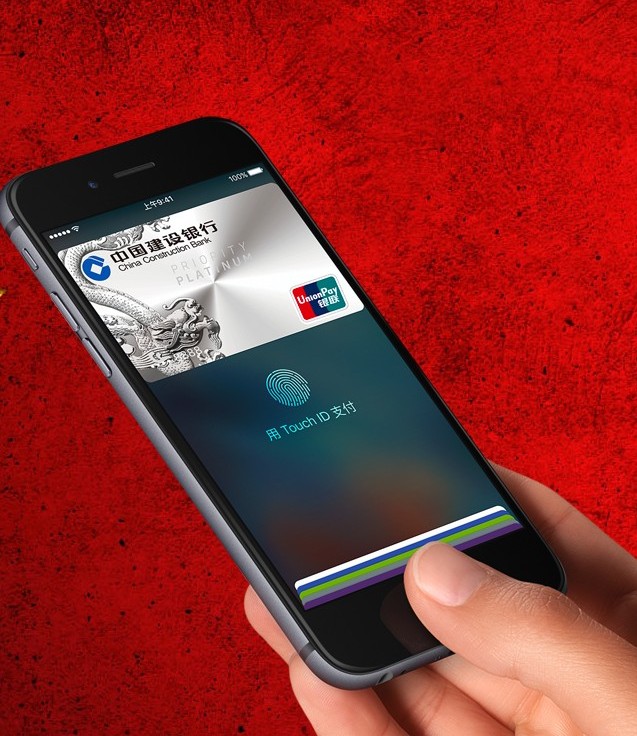Find out the week’s top mobile stories from around the world.
This week.. EU hits Google with 2nd anti-trust charge, UK report cites rising digital privacy concerns, Ghana & mobile democracy, plus many more mobile news stories from across the ecosystem.

EU hits Google with second antitrust charge
Reuters
The European Union charged Google on Wednesday with using its dominant Android mobile operating system to squeeze out rivals, opening a second front against the U.S. technology giant that could result in large fines.
EU antitrust regulators said that by requiring mobile phone manufacturers to pre-install Google Search and the Google Chrome browser to get access to other Google apps, the U.S. company was harming consumers by stifling competition.
The EU’s move is the latest in a series of anti-trust challenges Google has faced in both the EU and countries including India, Brazil and Russia. U.S. regulators closed their most recent investigation of the company in 2013 without taking action.
Read more…
UK report finds rising digital privacy concerns
Tech Crunch
A comprehensive study of Brits’ usage of and attitudes to digital media, conducted annually by telecoms watchdog Ofcom, suggests there is growing concern among web and app users about the privacy of their personal data.
The latest study, published today and based on responses gathered in 2015 — the tenth year the research has been carried out — notes that concerns about media among users are “broadly unchanged” since 2013, but does flag up a rise in concern among app users specifically about what’s being done with their personal data.
According to the research, three in ten (28%) of those who use apps now have concerns, compared to two in ten (20%) in 2013 — with security/fraud or privacy (20%) being the most common concern.
Read more…
Uber rolls out facial recognition in China
Tech In Asia
There’s an uncomfortable amount of fraud in the ride-hailing app industry. Drivers have been caught doing everything from spoofing their locations to faking rides to cash in on subsidies.
Apps like Uber, China’s Didi Kuaidi, and India’s Ola have rolled out a suite of security features to crack down on fraud and get a handle on who the hell is driving those cars.
The latest comes from Uber, which today unveiled a sophisticated new facial recognition feature to make sure drivers are who they say they are. And it will be first launched in China.
Facial recognition will be used to confirm a driver’s identity during registration, and will also be part of periodic spot checks in the app.
This isn’t likely to change much on the user side. The biggest difference you’ll see if you’re hailing a ride is that your driver’s picture will be more standardized.
Read more…
Samsung team-up aims to improve your mobile payments
Engadget
If you’ve ever tried paying with your phone at a store, you know that the experience is often only as good as the payment reader — a sketchy terminal could lead to you pulling out a credit card in embarrassment. Samsung thinks the industry can do better, though. It’s partnering with some of the larger point-of-sale device makers (such as Verifone and Ingenico) to guarantee “maximum compatibility and universal acceptance” for Samsung Pay.
The hope is that this will boost the adoption of mobile payments simply by giving you a better time when you tap-to-pay, with fewer errors that make you rethink the whole concept.
Read more…
mHealth’s Benefits Are Coming into Focus for Eye Doctors
mHealth Intelligence
New technology is helping ophthalmologists and optometrists improve their workflows – and giving consumers access to eye care wherever they need it.
Until recently, mHealth in eye care generally consisted of a doctor driving around in a van, providing eye exams for those not inclined or able to visit the local eye doctor.
But the advent of mHealth technology and cloud-based platforms has given rise to a new – and sometimes controversial – platform for eye care. Ophthalmologists and optometrists are now using mobile-optimized EMRs and practice management tools on their smartphones and tablets, and they’re involved in video consults with hospitals and health systems. They’re even viewing, and in some instances giving, eye exams online, or helping patients take eye tests on their own devices.
Read more…
Ghana’s mobile-powered democracy
OZY
In Accra, Ghana’s capital, it’s easy to tell the start of election season. It’s not the glossy posters on the streets or the political ads on television that give it away — it’s all the text messages. Months before heading to the polls, Ghanaians start to receive friendly SMS from their government, reminding them how many ambulances they have bought that year — or from the opposition, explaining how many schools they would build if they were in power.
Mobile campaigning will likely be crucial in the upcoming November election in this West African country, because the political battlefield is inside people’s pockets. Dozens of mobile governance initiatives are popping up in the country, including GotToVote!, which helps people find nearby voting registration stations, and My Ghana Budget, which lets citizens navigate and understand their state’s budget.
Read more…
Pubmatic’s Quarterly Mobile Index Reveals Key Mobile Trends for 2016
Mobile Marketing Magazine
The value of Android app inventory has risen nearly 150 per cent year-on-year, as advertisers seek to target the majority of global mobile consumers, according to new figures from Pubmatic‘s quarterly mobile index.
The report, which looked at Q1 2016, identified a number of trends, including the rise in Android app value, the growth in average mobile CPMs in mature markets, and the power of sporting events to drive spending in mobile private marketplaces.
While Apple app inventory still garners a higher price than Android, prices for apps using Google’s OS are growing faster than for Apple, up 147 per cent year-on-year compared to 62 per cent for Apple.
Read more…
Homes are increasingly relying on mobile internet only
The Hill
The United States has seen a sharp rise in families that exclusively rely on smartphones or mobile connections for home internet use.
Statistics from a huge survey conducted by the National Telecommunication and Information Administration show that 20 percent of people with home internet rely on mobile only, with no wired connection. That number has doubled since 2013.
However, the numbers reveal that most home internet users still rely on a wired connection. Seventy-five percent of homes that have internet service still rely on wired internet or a combination of wired internet and mobile service. But that number dropped 5 percent since 2013.
Read more…
Where Are Wearables Heading?
Huffington Post
Our wrists are under siege.
By the end of 2015, approximately 84 million wearable devices – from fitness trackers to smart watches and connected bracelets – were sold globally. Gartner predicts that these products will exceed 500 million shipments by 2020 and almost two in five of us will use a wearable by 2019.
Wearables are getting serious
Judging by this year’s Consumer Electronics Show and Healthcare IT trade-show, HIMSS, it’s clear that wearables are making their way into the healthcare space.
Read more…
Game deals rebounded in Q1, but mobile game investments plunged
VentureBeat
Games deals rebounded in the first quarter of the year, with game startups raising more than $500 million, according to tech adviser Digi-Capital. But there are “rocks beneath the surface” of that good news as mobile game investments plunged, the report said.
Last year was the worst in a decade for game deals, or the combination of both game investments and mergers and acquisitions. The Q1 numbers make that look like the market thawed, but the $500 million raised in Q1 included three big deals that were more than half the total, according to the report by Tim Merel, the managing director of Digi-Capital and CEO of Eyetouch Reality.
The number of games companies that successfully raised money in Q1 2016 actually dropped 40 percent compared to the 2015 quarterly average. Similarly, games mergers and acquisitions appeared to make a spectacular recovery in Q1, with over $6.2 billion dollars of exits.













